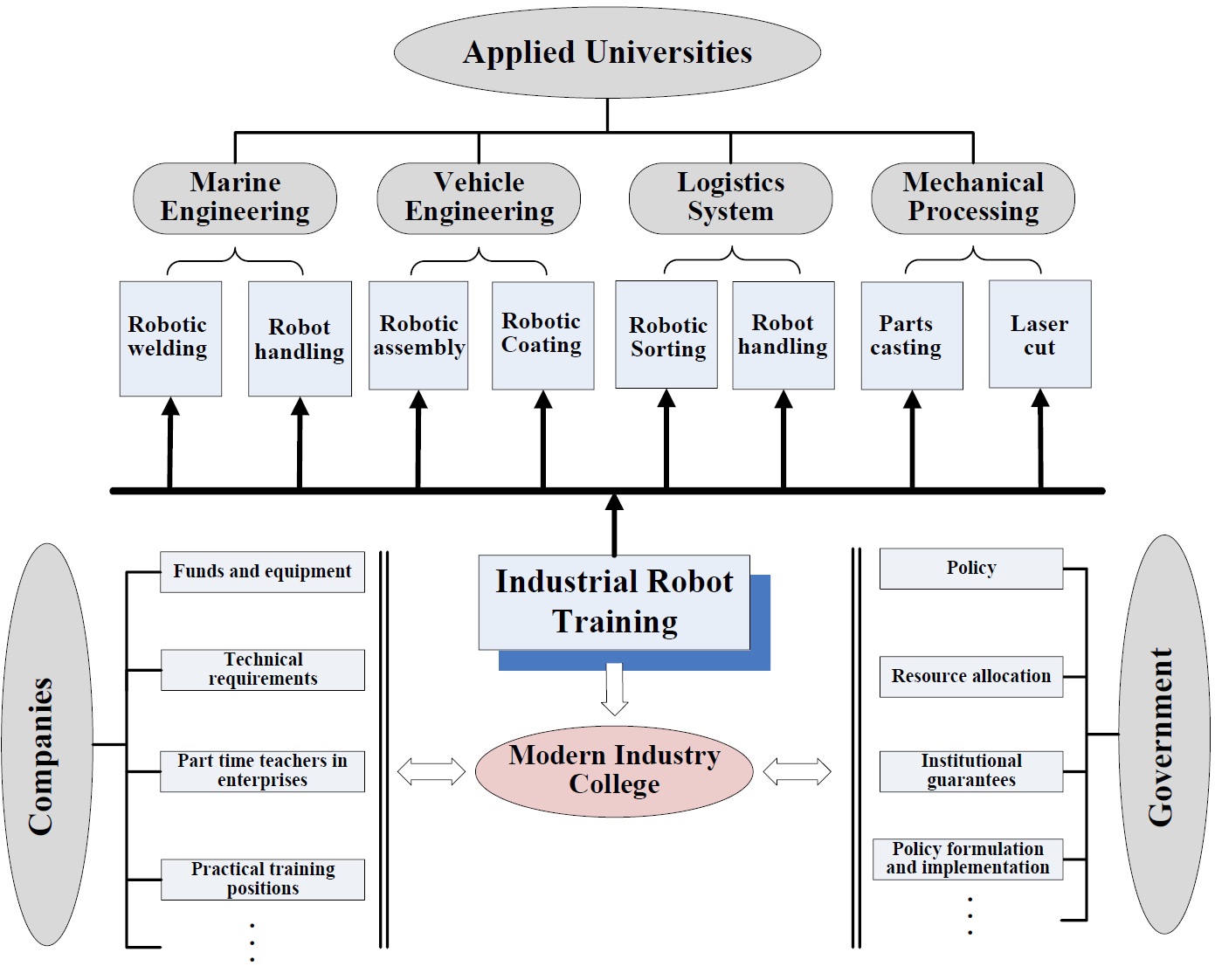Practice and Innovation in Laboratory Management for Industrial Robots Under the Modern Industrial College Model
Abstract
To promote the effective application of industrial robot technology in integrated engineering teaching methods within universities, this study analyzes the background of modern industrial colleges deepening industry-education integration and advancing collaborative education. Using the KUKA industrial robot laboratory as a platform, a practical teaching model of " PDCA cycle with flipped classroom" is proposed. Through innovative approaches such as safety management system optimization and digital twin applications, after four years of teaching practice, the industrial robot laboratory has maintained high-quality experimental and practical training courses even under high operational loads. This management model can serve as an important reference for laboratory management in modern industrial colleges.
References
Dauth, W., Findeisen, S., Suedekum, J., et al. (2017). German Robots – The impact of industrial robots on workers. European Economics: Labor & Social Conditions eJournal, 9, 1–7.
Luo, Y., Wang, J., Li, J., & Fang, Y. (2024). Research on the teaching mode of industrial robots under the modern industrial college model. In IEEE ICCD-2024 (pp. 1–7). Qinzhou City, China: IEEE. https://doi.org/10.1109/ICCD62811.2024.10843530
Zhang, B., Tang, T., & Shi, Y. (2025). A study on the adaptation of ideological and political education of college students with disabilities in integrated education. IDEAS SPREAD, 8, 20–24. https://doi.org/10.30560/ier.v8n3p20


This work is licensed under a Creative Commons Attribution 4.0 International License.
Copyright for this article is retained by the author(s), with first publication rights granted to the journal.
This is an open-access article distributed under the terms and conditions of the Creative Commons Attribution license (http://creativecommons.org/licenses/by/4.0/).








1.png)

















